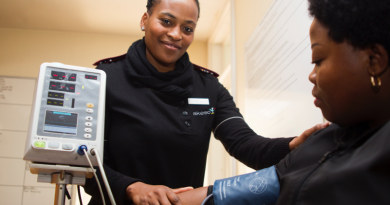The Family Guide to Understanding and Realizing If a Loved One is Suffering from an Substance Addiction
Substance abuse affects more than just the user. Their family also feels the effects of substance abuse. Whether it is seeing your loved one spiral out of control, getting stood up, being embarrassed, getting physically hurt as a direct result of substance abuse, the list of possibilities goes on and on. Watching someone you love struggle with addiction is an extremely hard thing to do.
Perhaps you have tried to talk to your loved one about how their addiction is affecting you, but they’re not hearing you or don’t seem to care one bit. This can cause you to feel angry, sad, depressed, etc. and that is totally normal. You are allowed to have your feelings, yours. But there are ways for you to cope as a family member of someone who suffers from substance addiction. Places like Harrishouse.org can be a great resource. Not only do organizations like this one support addicts and recovering addicts, but they also support the families of substance abusers. Educating yourself about addiction and substance abuse is just as important as dealing with the emotional and mental stress your loved one has caused you.
Contents [hide]
Warning Signs
If you are unsure of whether or not your loved one is suffering from addiction there are some telltale signs that there may be a problem. If you should happen to notice any of these things, be sure to speak up. Be prepared, you may be met with ire and anger, but if you are lucky enough to catch on early, you may be able to help them pull themselves out of a very dangerous and unhealthy lifestyle.
Drug addiction typically starts with experimentation, and according to the NIDAs National Survey of Drug Use and Health, more than 80% of people reported drinking alcohol. And nearly 50% of individuals reported that they had used illicit drugs at least once in their lifetime. With numbers like these, it is important to know what to be on the lookout for. Here are some warning signs to look for.
- Declining grades and disinterest in school among those who are school age, as well as a change in their group of friends.
- Poor work performance, like routine lateness and negative reviews.
- Changes in physical appearance, like emaciation, poor grooming and dirty clothing.
- An increased desire to have privacy, and other significant behavioral changes.
- It gets defensive when the issue of substance abuse is raised.
- Significant changes in appetite.
- Difficulty managing finances, including increased spending, borrowing money often and falling behind on bills.
- Drastic changes in relationships with family and friends.
It is important to note that many of these signs are also symptoms of other problems as well. Grief, anxiety, mental illness, depression post-traumatization stress disorder can also present themselves much like the way in which substance abuse presents itself. Of course, you don’t want to stand idly by while a big problem grows bigger, but it’s a good idea to consider all of the factors that you know are going on in your loved one’s life. If lots of things have happened in a short period of time (i.e. death, job loss, trauma, etc.) then it may not be drug or alcohol use at all.
Types of Drugs
There are many different types of drugs and they will affect the user differently. Stimulants like cocaine and meth will cause users to be very upbeat, chatty, social and physically active. They may not feel the need to sleep or eat, and they can easily become aggressive or hostile, and they may experience hallucinations or paranoia. Cocaine and meth addiction can lead to devastating consequences including physical deterioration, severe psychological problems, and social and economic ruin.
Marijuana use will often be accompanied by red or bloodshot eyes, excessive talkativeness, uncontrollable laughter for no reason, dry mouth and binge eating (usually sweets). Marijuana users are prone to lethargy and delayed reactions, and they may sometimes have feelings of paranoia.
Club drugs will cause the user to sweat excessively, slur their speech and have poor coordination. These types of drugs have strong biological effects that can result in an increase in body temperature.
Opioids include prescription drugs like Vicodin as well as illicit drugs like heroin. These drugs will make the user appear very sedate and calm, even lethargic. Mood swings are very common and cognitive processes like memory and concentration may be affected.
Depressants include barbiturates and prescription drugs like Xanax. Users will appear uninhibited and uncoordinated, confused and depressed. Sometimes involuntary eye movements will be noted.
Hallucinogens include drugs like psychoactive mushrooms, PCP and LSD. Signs will vary depending on the specific hallucinogen. Sometimes users will be panicky or paranoid, others may become hostile or aggressive. Some experience peaceful and euphoric feelings and an inability to distinguish between reality and hallucinations.
Education
Understanding that addiction is just as much a physical disorder as it is a mental issue can make things a lot easier to cope with. You may be surprised to learn that addiction is a disease that actually changes the brain of the addict. That’s right, addiction changes the way the brain handles self-control, stress responses, rewards and more. Depending on the person, these changes to the brain can be very long-lasting or even permanent. But this doesn’t mean that your loved one can’t overcome their addiction. What it means is that a person who struggles with addiction will need counseling and therapy to recognize their behavioral patterns and the triggers that lead them to use.
Beginning to understand that the thought processes of an addict are significantly altered from normal and healthy brain activity may help you to be more sympathetic or compassionate toward the addict in your life. Because of the dependence they have developed, they are no longer able to function without it. It can take the body anywhere from a few hours to several days for the effects of a drug to wear off, and when it does, the body will beg for it.
It’s Not Your Fault
Many times we want to blame ourselves for our loved one’s addiction. We start to go through our memories looking for where we might have gone wrong. We ask ourselves if we could have done things differently. This is absolutely normal, but it is very unnecessary. The time that is spent trying to figure out the onset of the addiction and the role you may or may not have played does nothing to change the fact that your loved one suffers from substance addiction.
If you are the parent of an addict and you did everything you could to give your child a great life and opportunities, there is no reason to blame yourself. We all make our own decisions, so whether or not you were there when they took their first drink, dose or hit makes no difference. Addicts tend to be manipulative, and will often try to cause those who love them guilt in order to justify their continued substance abuse. You will have a difficult time helping them along the road to recovery if you are bogged down by unjustified guilt.
When the addiction has a strong grip on your loved one, things may seem really bad. They will be resentful and angry with you for pointing out their addiction and they may also get violent with you if you attempt to stand in the way of them getting what they think they want. It helps to remember that it is not your loved one speaking or acting, it is the addiction.
Approach the Situation Carefully
It is not always easy to approach someone you love about their addiction, and the situation should be handled carefully. You don’t want to come to them accusing them and blaming them for the situation. Not only can this make the situation worse, but it can also cause your loved one angst, depression or misplaced aggression towards you.
If the goal of you speaking up is to persuade them to seek professional help, then you definitely don’t want to go into the discussion with guns blazing. Try to keep a calm tone and speak from a well-meaning heart. Make it clear that their best intentions are at heart and that you want to support them as they go through recovery. If you are met with ire and aggression, you may want to try to have this talk at another time. Remember to be compassionate and honest when addressing their substance abuse and how it is affecting your relationship.
Realizing that your loved one is an addict is very disconcerting, and because you love them, you want them to get well. Just know that your sincerest desires for them to get clean are not likely enough to bring about their sobriety. If an addict is not of the mind to stop abusing drugs or alcohol, rehabilitation programs are probably not going to work well, and relapse will be highly probable.
Your patience and compassion will be necessary. And depending on your situation, it may require you to distance yourself until it is safe. You don’t need to worry that you are doing your loved one a disservice. If you are not well, you won’t be of much assistance to them, so be sure to take care of yourself so that you can thrive.




